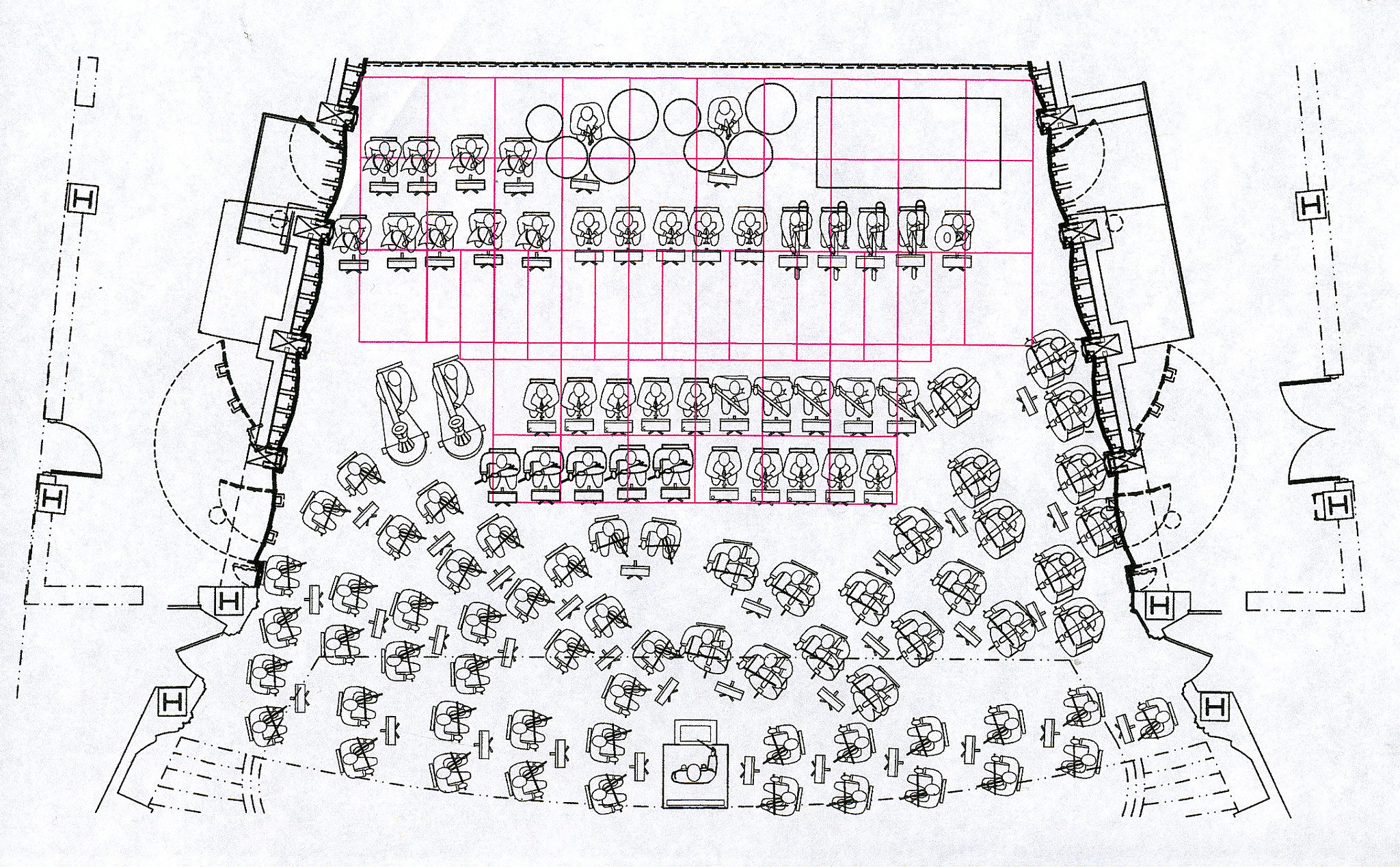Stage crews, operation managers and music directors
12 December 2013 by Marc Taddei
Posting Orchestra Wellington’s latest video started me thinking about orchestras – specifically the huge wealth of talent and dedication that resides within them, beyond that of the performing artists. I am, at times, overwhelmed by this level of commitment.
I’d like to focus on one such group and a specific relationship that every music director must consider. The first scenes that are portrayed on the video focus on the stage crew and the background voice of Kurt Gibson – Orchestra Wellington’s operations manager. Make no mistake – without a first-rate stage crew and operations manager, the ability for musicians to perform to their highest level will be severely curtailed. It can be easy to overlook their contribution because if they are doing their jobs well, issues simply to not arise.
Orchestral setup is a vexed issue from almost every angle. As a conductor, I endeavor to set the orchestra up in a way that respects the music, tradition, performance considerations, stage dimensions, acoustic anomalies, sight-lines, health and safety and in a manner that presents the orchestra to the audience in a visually acceptable manner. Clearly any or all of these issues can work at cross purposes with the other from time to time. I am fortunate that the operations manager and stage crew of Orchestra Wellington are understanding of these important considerations. I am also really pleased that my colleagues in the orchestra are understanding and happy to experiment, if need be – at least no one has complained to me so far (about this!).
I have taken great delight in juxtaposing works in an effort to bring resonance and pleasure to the audience. Occasionally this presents massive challenges to the operations manager and stage crew. One example was a concert that began with the Symphony of Psalms and then concluded with a semi-staged version of Bluebeard’s Castle – complete with multiple level staging, multiple video projectors, off stage brass, complex lighting effects (and only 25 minutes to effect the change during the interval).
The relationship of a music director and the operations manager is hugely important and it is vital that communication is open and forthright, if great performances and vital artistic experiences are to be made. Compromises must be made from time to time – in a manner that honors and respects the music and musicians.
